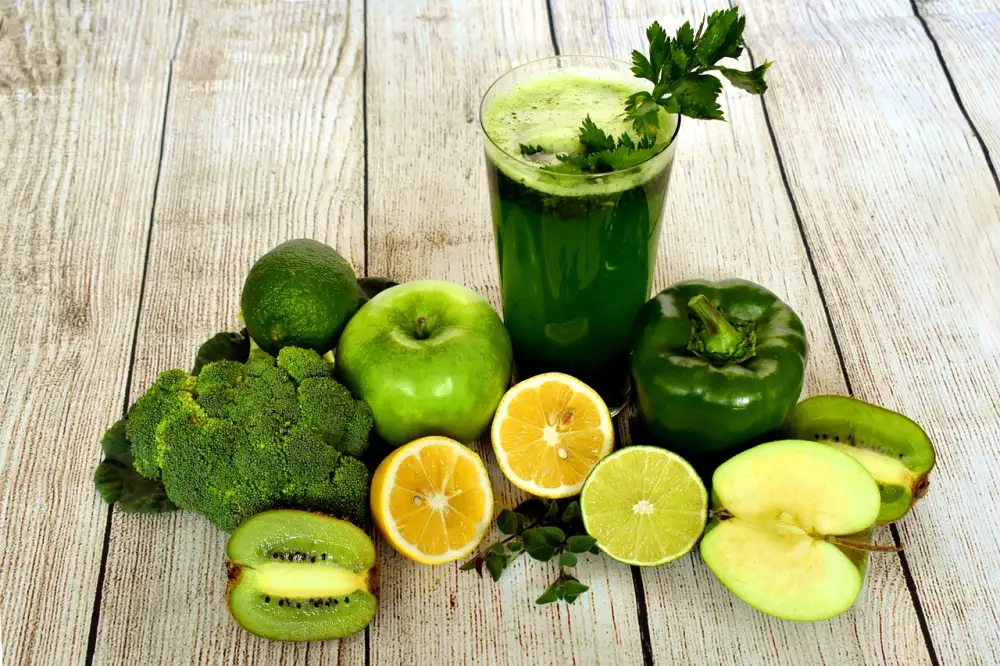Revitalize Your Health with a Refreshing Juice Diet: A Nutrient-Packed Approach to Rejuvenation

- Benefits of a juice diet for overall health
- How a juice diet aids in weight loss
- Nutritional value of different types of juices
- Tips for starting a juice diet
- Potential risks and precautions of a juice diet
- Incorporating exercise with a juice diet
- Success stories and testimonials from individuals who have tried a juice diet
- Frequently asked questions about the juice diet
In today's fast-paced world, it can be challenging to maintain a healthy lifestyle. However, one effective way to revitalize your health and rejuvenate your body is through a refreshing juice diet. A juice diet involves consuming freshly squeezed juices made from fruits and vegetables for a certain period of time, while abstaining from solid food. This nutrient-packed approach provides your body with essential vitamins, minerals, and antioxidants, promoting overall well-being. Whether you're looking to lose weight or simply improve your health, a juice diet offers a natural and delicious way to achieve your goals. So why not give it a try and embark on a journey towards better health?
Benefits of a juice diet for overall health
A juice diet offers numerous benefits for overall health. Firstly, it provides a concentrated dose of essential vitamins, minerals, and antioxidants that are easily absorbed by the body. This helps to boost the immune system, improve digestion, and enhance energy levels. Secondly, the high water content in juices helps to hydrate the body and flush out toxins. Additionally, a juice diet can promote healthy skin by providing nutrients that nourish and rejuvenate the skin cells. Lastly, consuming a variety of fruits and vegetables in juice form can help to reduce inflammation in the body, lower cholesterol levels, and support heart health.
How a juice diet aids in weight loss
A juice diet can be an effective tool for weight loss due to several reasons. Firstly, juices are low in calories but high in nutrients, which means you can consume a larger volume of food while still keeping your calorie intake in check. Secondly, juices are rich in fiber, which helps to keep you feeling full and satisfied for longer periods of time. This can prevent overeating and snacking on unhealthy foods. Additionally, the natural sugars found in fruits and vegetables provide a healthier alternative to processed sugars, reducing cravings for sugary snacks and desserts. Lastly, the high water content in juices helps to hydrate your body and flush out toxins, promoting overall health and aiding in weight loss.
Nutritional value of different types of juices
Different types of juices offer a wide range of nutritional benefits. Citrus juices, such as orange and grapefruit, are rich in vitamin C and antioxidants. Green juices, made from leafy greens like spinach and kale, are packed with vitamins A, C, and K, as well as iron and calcium. Beet juice is high in nitrates which can improve athletic performance. Carrot juice is an excellent source of beta-carotene and vitamin A. And finally, berry juices like blueberry and cranberry are loaded with antioxidants that support brain health. Incorporating a variety of juices into your diet ensures you receive a diverse array of essential nutrients to nourish your body.
Tips for starting a juice diet
1. Start slowly: Gradually introduce juices into your diet by replacing one meal or snack with a juice each day. This will help your body adjust to the change.
2. Choose fresh, organic produce: Opt for fruits and vegetables that are free from pesticides and chemicals to maximize the nutritional benefits of your juices.
3. Experiment with different flavors: Mix and match fruits and vegetables to create delicious and varied juice combinations. This will keep you excited about your diet and prevent boredom.
4. Stay hydrated: In addition to consuming juices, it's important to drink plenty of water throughout the day to stay hydrated and support the detoxification process.
5. Listen to your body: Pay attention to how you feel during the juice diet. If you experience any discomfort or adverse effects, consult a healthcare professional.
6. Prepare in advance: Plan your meals ahead of time by prepping ingredients and storing them in portioned containers. This will make it easier to stick to your juice diet even when you're busy.
7. Seek support: Join online communities or find a buddy who is also following a juice diet. Sharing experiences, tips, and recipes can help keep you motivated and accountable.
Remember, consulting with a healthcare professional before starting any new diet is always recommended for personalized advice based on your specific health needs.
Potential risks and precautions of a juice diet
While a juice diet can provide numerous health benefits, it is important to be aware of potential risks and take necessary precautions. Firstly, a juice diet may not provide all the essential nutrients your body needs, such as protein and healthy fats. It is crucial to consult with a healthcare professional or nutritionist before starting a juice diet to ensure you are meeting your nutritional requirements.
Additionally, some individuals may experience side effects such as headaches, fatigue, or dizziness when transitioning to a juice diet. This is often due to the sudden reduction in calorie intake. Gradually easing into the diet and ensuring you consume enough calories from juices can help minimize these symptoms.
Furthermore, certain medical conditions or medications may not be compatible with a juice diet. Individuals with diabetes, kidney problems, or compromised immune systems should exercise caution and seek medical advice before embarking on this type of diet.
Lastly, it is important to remember that a juice diet should not be followed for an extended period of time. It is recommended to limit the duration of the diet to a few days or weeks at most. Prolonged periods without solid food can lead to nutrient deficiencies and negatively impact overall health.
By being aware of these potential risks and taking appropriate precautions, you can safely reap the benefits of a juice diet while minimizing any potential negative effects on your health.
Incorporating exercise with a juice diet
Incorporating exercise with a juice diet is essential for maximizing the benefits of this rejuvenating approach. Exercise helps to boost metabolism, burn calories, and build lean muscle mass. It also improves cardiovascular health and enhances overall fitness levels. When combined with a nutrient-packed juice diet, exercise can accelerate weight loss and improve body composition. Aim for a mix of cardio exercises like running or cycling, along with strength training exercises like weightlifting or yoga. Start slowly and gradually increase the intensity and duration of your workouts as your energy levels improve. Remember to stay hydrated during exercise by drinking plenty of water or herbal tea.
Success stories and testimonials from individuals who have tried a juice diet
Success stories and testimonials from individuals who have tried a juice diet can be incredibly inspiring. Many people have reported significant improvements in their overall health, increased energy levels, and even weight loss. One individual shared how incorporating a juice diet into their lifestyle helped them overcome chronic fatigue and digestive issues. Another person mentioned how they were able to reduce their cholesterol levels and lower blood pressure by following a juice diet for a few weeks. These success stories serve as motivation for those considering embarking on a juice diet journey.
Frequently asked questions about the juice diet
1. Is it safe to only consume juice for an extended period of time?
While a short-term juice cleanse can be beneficial, it is not recommended to solely rely on juice for a long period. Consult with a healthcare professional before embarking on any drastic dietary changes.
2. Can I still exercise while on a juice diet?
Yes, but it's important to listen to your body and adjust your workout intensity accordingly. Focus on low-impact exercises such as yoga or walking, and stay hydrated throughout.
3. Will I feel hungry on a juice diet?
Initially, you may experience hunger pangs as your body adjusts to the new routine. However, the high nutrient content in juices should help keep you satisfied. If hunger persists, consider adding small portions of whole foods like nuts or seeds.
4. Can I drink store-bought juices instead of making my own?
Although convenient, store-bought juices often contain added sugars and preservatives. It's best to make your own fresh juices at home using organic fruits and vegetables for maximum health benefits.
5. How long should I follow a juice diet?
The duration of a juice diet varies depending on individual goals and health conditions. It is generally recommended to start with a 3-7 day cleanse and gradually reintroduce solid foods afterward.
Remember, always consult with a healthcare professional before starting any new diet or cleansing program to ensure it aligns with your specific needs and goals.
In conclusion, a juice diet can be a great way to revitalize your health and rejuvenate your body. It offers numerous benefits for overall health, aids in weight loss, and provides essential nutrients. However, it is important to consider the potential risks and precautions associated with a juice diet. It may not be suitable for everyone, especially those with certain medical conditions or dietary restrictions. Before starting a juice diet, consult with a healthcare professional to ensure it is right for you. Remember to incorporate exercise and maintain a balanced diet for optimal results.
Published: 11. 12. 2023
Category: Food



